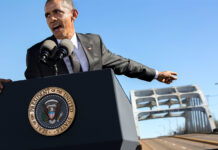
A Time to Celebrate the Oligarchs
Fed Smith, FedEx founder and leader, died last week at age 80. What you might not have known about Smith was his commitment to philanthropy. A generous Fred Smith sank millions of dollars into renovating sports stadiums, funding zoo exhibits, and endowing scholarships at historically black colleges/universities.
In the WSJ Jason Riley is certain Smith’s legacy will not be so much on how Smith made his riches, but rather on how he spent it.
These days, the trend seems to be to dumping on oligarchs. Politically, it seems a requisite to a rise in political careers to tool on the wealthy.
Sen. Bernie Sanders and Rep. Alexandria Ocasio-Cortez have drawn large crowds at left-wing political rallies denouncing the supposed villainy of billionaire moguls.
Missing from the rhetoric of Democrat leaders is the acknowledgment that our greatest industrial pioneers—from Thomas Edison and Andrew Carnegie to Bill Gates—amassed their fortunes by increasing social mobility and enriching the lives of others.
Even though the Ford Foundation has spent billions of dollars on poverty initiatives, human-rights advocacy, and other selected causes, it misses highlighting Henry Ford’s most significant achievement: developing the moving assembly line in the 1910s, which transformed manufacturing. “Ford made automobiles accessible to America’s burgeoning middle class, expanded job opportunities, and accelerated the expansion of related rubber and steel industries.”
How did John D. Rockefeller grow fabulously wealthy? By revolutionizing an entire industry while improving the lives of others in the process.
The rise of Standard Oil led to cheaper prices for oil and oil byproducts, including kerosene and gas. More goods could be transported over greater distances at lower cost and in less time. The everyday man could illuminate his home at night and no longer had to stop working when the sun went down.
Rockefeller’s money gave us the University of Chicago, Colonial Williamsburg, and New York City’s Museum of Modern Art, but his ambition made immeasurable contributions to U.S. productivity.
As Mr. Riley notes, Fred Smith did not invent special delivery either directly or indirectly.
Smith made mail service “more efficient and reliable than it had been before FedEx was launched in the early 1970s. By then, postal delivery was facing a crisis. Costs were rising, and service was poor.”
Dysfunction at US Postal Service
The Post Office Department, predecessor to the U.S. Postal Service, hadn’t upgraded its equipment in decades. Costs were rising, and it ran a deficit of more than $1 billion.
Fred Smith, ever observant, shaped mail service to be more efficient and dependable even before FedEx was launched in the early 1970s, when postal delivery was facing a crisis.
Taking Customers for Granted
In search of an opportunity, Smith observed that the PO’s monopoly on certain types of mail delivery was due, not to Smith’s surprise, to bureaucratic inertia and mismanagement.
Customers suffered because they could be taken for granted.
Smith came up with a way to deliver documents faster and more reliably. He was so successful that the company’s name eventually became a verb—“I’ll FedEx you the package overnight”—and it changed forever the way billions of people in hundreds of countries send and receive parcels.
When Dick and I first moved to Key West in the early 1990s, it was the hay day of the investment newsletter business. Dick was still writing Young’s World Money Forecast. In those days, it was floppy disks, accompanied by FedEx, that allowed us to reside in Key West and write, edit and send with confidence RCY’s multi-page report.
From Key West, Naivety or Faith?
Dick wrote. I edited. And, yes, disagreements cropped up over errant punctuation or adverbial phrases. But how to get those floppies to the publisher over 1,200 miles north?
What could easily have been a no-go situation in getting each edition to the Maryland publishing house (founded by Tom Phillips) was solved by FedEx. As months turned to years, never once do I remember worrying that the disks we handed to FedEx wouldn’t arrive on time to the correct office. Our confidence in FedEx was absolute.
Fed Smith had thrown the gauntlet down, and the sleepy PO no longer could ignore its problem. The US PO had no choice but to rise to the challenge. Upgrading was key: “technological upgrades—including, eventually, online tracking and mobile apps—and improved on-time delivery rates and customer satisfaction. More mailing options led to more and better services to meet market demand.”
FedEx’s participation has long served as a model for education reformers, who liken the Postal Service to the traditional public-school system, explains Mr. Riley.
Needed improvement won’t come from within the education establishment, they argue, unless outside pressure is brought to bear in the form of charter schools, parochial schools, vouchers, tax credits and other innovations.
Mike Feinberg, who co-founded the KIPP charter school network in the 1990s, has said that Smith’s company was a major inspiration. “FedEx didn’t hurt the post office. It made it better,” Mr. Feinberg once told a reporter. “I want the monopoly mindset broken up,” he has also said. “Without competition, neighborhood schools behave like monopolies, delivering low quality at high cost.”
Empirical studies have supported these claims. Research by Caroline Hoxby, an economist at Stanford, demonstrated that schools respond positively to deregulation and competition in the same way that other sectors do. Deregulation of the trucking industry in the 1970s resulted in faster and more-specialized customer service than before at the same price. Competition from foreign automakers has enhanced the quality of domestic vehicles.
Competitions Give Choices
Like any good competitor, FedEx spawned other private enterprises – United Parcel Services, Federal Express, DHL Worldwide Express, etc.
The most efficient way to improve K-12 education is to make schools compete for students, encourages Mr. Riley.
As Fred Smith and so many other successful entrepreneurs well-understood, more competition makes organizations strive to do better. Less competition breeds complacency.




